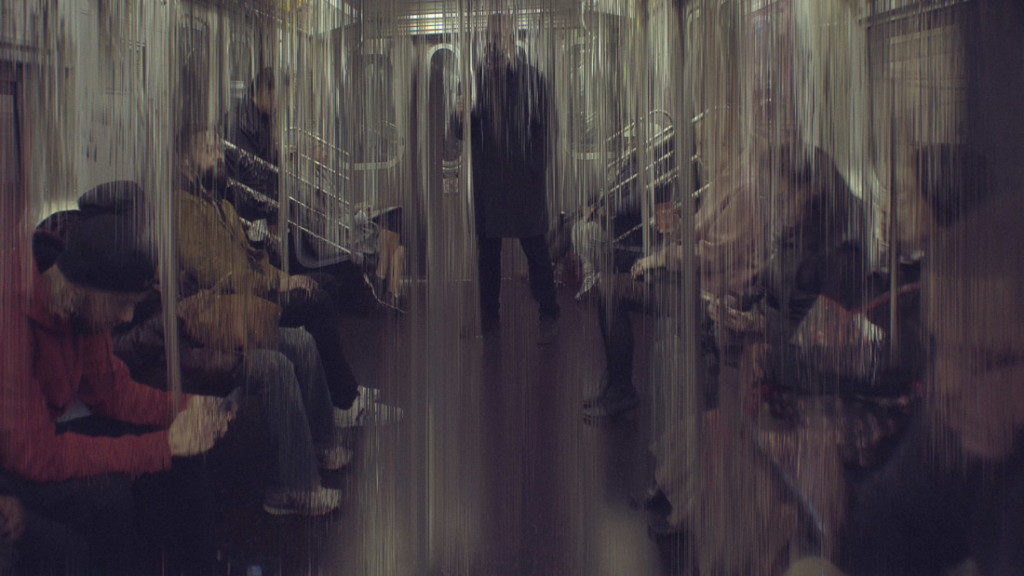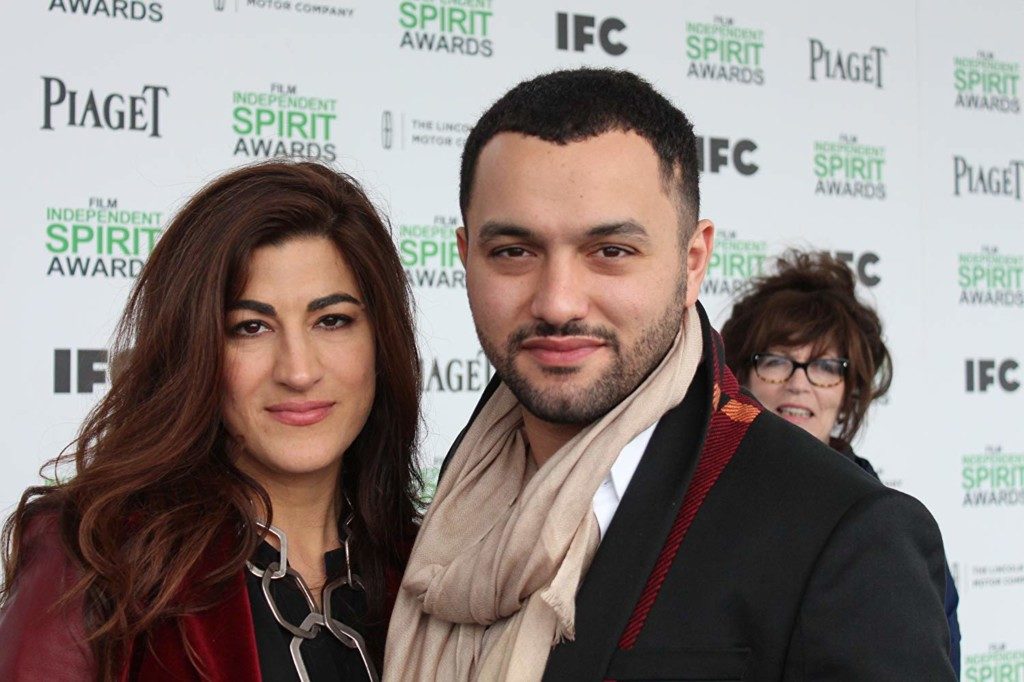Prior to the opening of this year’s Sundance, producer Geralyn Dreyfous said the Cambridge Analytica/Facebook data breach is part of two of the biggest stories of the year. After watching The Great Hack, directed by Karim Amer and Jehane Noujaim, which made its Sundance premiere, Dreyfous’ assertion rings with conviction.
The 139-minute documentary, which will be screened later this year as a Netflix original, tackles an immense, complex topic – the exploiting of user data and user trust – and the potential range of its implications in two of the most consequential global political events in recent years: the 2016 U.S. presidential campaign and the 2016 Brexit referendum calling for the U.K. to withdraw from the European Union.
This is as complicated a topic as one can imagine for a film, considering that only a few journalists around the world have succeeded at framing it with any sense of clarity and cohesion. Indeed, the plot line continues to unfold and the directors explained in a talkback following a Salt Lake City screening that the film will continue to be edited, as developments on several fronts occur. There is the special counsel probe by Robert Mueller of the Trump Administration.

Indeed, as journalist Carole Cadwalladr, who is featured in the film, has explained in a published piece that the U.K. needs its own Mueller-style probe to investigate any improprieties associated with the vote for the Brexit referendum. Questions about Cambridge Analytica’s involvement in the significant political events mentioned above have yet to produce conclusive answers. And, Facebook is being investigated by the Federal Trade Commission, regarding that the company sold the personal profile information for tens of millions of people to an outside app developer in 2014 (and later sold to Cambridge Analytica, which had the Trump campaign as its client in 2016). At the time, Facebook’s terms of service permitted the ability to collect the data. However, there was no permission to sell it.
Facebook almost certainly will be punished with a fine by the FTC, which likely will far outstrip the $22.5 million fine Google was ordered to pay in 2012 for a privacy-related breach. However, the company faces other penalties, which could entail a new privacy agreement with far stricter rules than those in currently in place. But, even those corrective measures barely begin to undo the cataclysmic damage resulting from the scandal. Yet despite the ominous news, Facebook’s latest earning report for the last quarter of 2018 still beat the best estimates of market analysts.
To help viewers begin to comprehend what is at stake, The Great Hack gives its viewer the monumental scope of what is at stake here, especially for those concerned about data trust and privacy. In fact, as Sundance has proceeded, at least three new revelations about Facebook’s general practices have come to light: minors have been intentionally enticed into accumulating substantial in-app purchases and refusing to issue refunds, a viral ad transparency initiative was discontinued, and an option for users as young as 13 to give Facebook the permission to view everything they do online. As Paul Hilder, who is among a select group of individuals featured in the film, wrote in a long OpenDemocracy.net article published this week, “Every expert I know believes that the Cambridge Analytica breach was just the tip of the iceberg [and] … other huge ‘friend databases’ were similarly extracted from Facebook and weaponized for political use.”
As part of its efforts, the filmmakers also have created a data privacy survey, accessible on its website, to help respondents understand whether their personal data are secured. A team is analyzing responses and will provide a summary to each respondent.
To marshal the comprehensive details, Amer and Noujaim focus on several key individuals on several fronts to draw the contours in an approachable, clarified frame for viewers to digest and process. One is David Carroll, who sued Cambridge Analytica to discover what data the company had compiled from his social media and digital presence and profiles. Carroll is a natural candidate for the film to represent the intelligent user who also is acutely sensitized to the advantages as well as the more troubling ramifications of relying on our digital means of communications. An associate professor of media design for the Parsons School of Design at The New School, based in New York City, Carroll is the ideally engaged academic who articulates the central concerns about the overarching topic that frames The Great Hack.

Working with U.K. attorney Ravi Naik, Carroll’s case has advanced toward his benefit at each step. Most recently, in the aftermath of Cambridge Analytica’s liquidation process, Carroll won a decision for the company to concede to his concerns and request about undisclosed data. The case continues, as his attorney expects a full hearing in the British courts. Also notable is that as Carroll’s case has proceeded, revelations have expanded about just how Cambridge Analytica is relevant to formal inquiries in the U.S. Congress, along with Mueller’s probe, and the U.K. Parliament.
And, then there is Brittany Kaiser, one of two former Cambridge Analytica employees who came forward. The other is Christopher Wylie, who is featured in several scenes, but Kaiser’s role is far more consequential. The story of Kaiser, now in her early thirties, makes for a compelling narrative that any narrative feature screenwriter would envy. A self-described progressive, she had worked on the Obama campaign’s Facebook communications team. She supported U.S. Sen. Bernie Sanders’ presidential campaign. She was instrumental in her employer’s efforts for Trump’s 2016 campaign. And, the range of digital politic activity, where the ethical as well as legal questions have become paramount, extended to other countries, including Trinidad and Tobago, as featured in the film.
In 2012, she met Alexander Nix through the SCL Group, a British company specializing in psychological operations, and later matriculated into the Cambridge Analytica corporate model. While Nix refused to be interviewed, the footage that includes him underscores his disgraced image. Julian Wheatland, who agreed to be interviewed for the film, took over from Nix last spring, as the company entered its final downward spiral. Wheatland’s demeanor in the film suggests that he is, more or less, the same as Nix. In fact, Wheatland had registered a new company, Emerdata, whose board members included Robert and Rebekah Mercer, the American billionaire who funded the American efforts of Cambridge Analytica for President Trump’s 2016 campaign.
Meanwhile, Cadwalladr’s journalism has broken many of the most important stories about Cambridge Analytica’s projects, including the re-election campaign of Nigerian president (now former) Goodluck Jonathan, of which he was unaware. In many respects, it was a test run for the upcoming U.S. presidential campaign.
Hilder, co-founder of Crowdpac.com and who has been involved with several prominent social action platforms, functions as a compass guide of conscience for Kaiser. She gradually realizes just how profound this scandal has become. In the aforementioned article, Hilder chronicles the evidence from tapes that reveal the broad extent of Cambridge Analytica’s activities that went beyond any acceptable boundaries, reaching into voter suppression and fraud. It is an important companion piece to help the viewer contextualize the film.
As the documentary progresses, the story’s shadows darken even further, as viewers begin to wonder what will be needed to recover from such a break in trust. As Cadwalladr explained in an essay last November, there are still many important unanswered questions, especially with regard to Facebook. She wrote:
Critically, it’s what happened on Facebook that remains the biggest question of all. The control of money spent during elections is the very basis of our electoral laws. But they no longer work. Facebook has become a giant funnel not just for dark ads, but for dark money that evades election finance laws. It is now not in doubt that Facebook facilitated data crimes, what we’ve failed to reckon with is how it has broken our democracy, too.
Essentially a still evolving film, The Great Hack stands out for compacting a tremendous amount of information into an accessible documentary that engages viewers with the critical questions surrounding the most fundamental functions of our 21st century digital daily lives.

Amer and Noujaim are distinguished filmmakers who understand how even a documentary film’s ending likely will be rewritten after its premiere. Such was the case with The Square, a 2013 documentary Amer produced and Noujaim directed, which was nominated for an Academy Award for Best Documentary Feature and received Emmy Awards for directing, cinematography and editing in 2014. That film won audience awards at Sundance and the Toronto International Film Festival. The Square was completed while events in Egypt’s politics and revolution were still in flux and the outcomes necessitated a different ending.
The Great Hack’s timing coincides with the public’s emerging awareness of the damage done. Americans anticipate every bit of news in the special counsel’s investigation with an intensity that had become rare in recent years. The onus of the scandal sometimes is so overwhelming that it is difficult to focus for viewers and media consumers. The Great Hack is an important starting point, as we brace for more news that could confirm our worst fears.
There is one remaining screening: Feb. 2 at 9 p.m. in Park City’s Temple Theatre.

